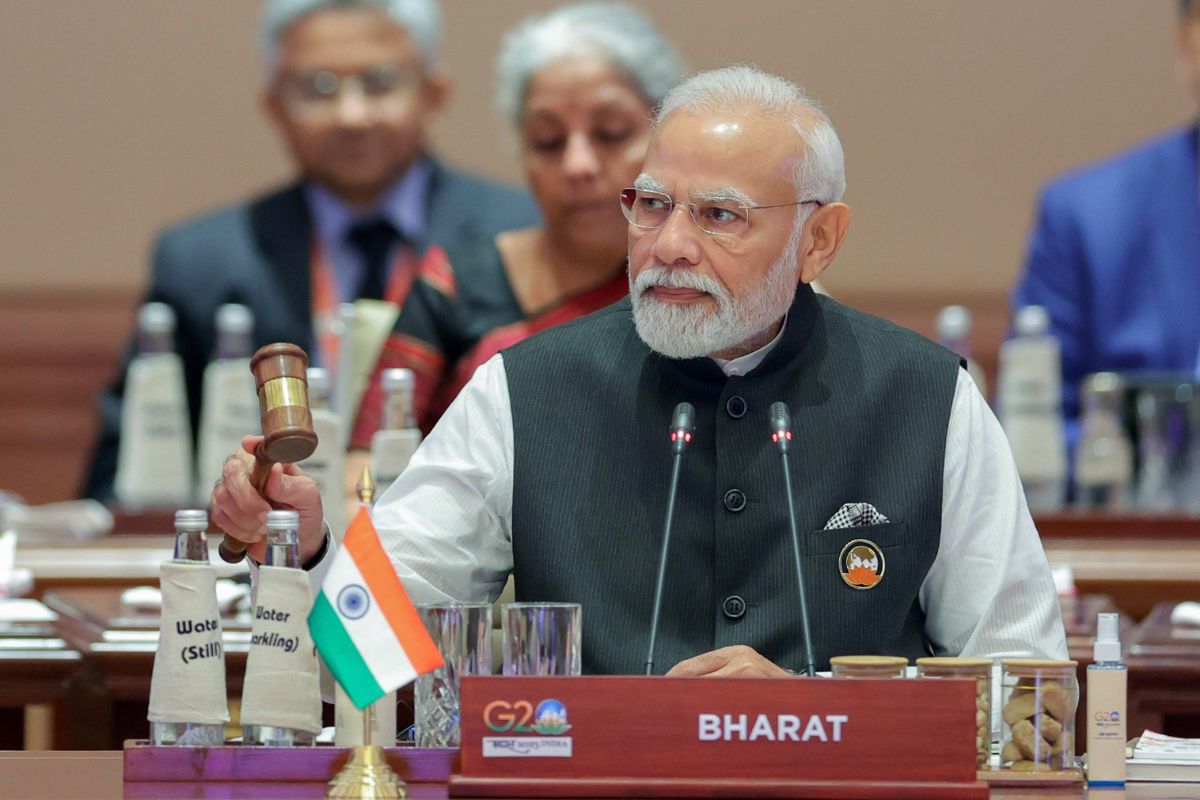In a pivotal year marked by global concerns over climate change, India has emerged as a beacon of leadership in the quest for a sustainable future. The nation’s strides in 2023 reflect a resolute commitment to environmental stewardship, setting a commendable example for the world to follow. At COP28, India achieved a remarkable feat by not merely meeting but surpassing its 2030 climate targets. The reduction of emissions per economic output by 33 per cent from 2005 to 2019 signifies a proactive approach, accomplishing the 2030 Nationally Determined Contributions (NDC) target more than a decade ahead of schedule. This achievement not only showcases India’s dedication but also challenges other nations to accelerate their efforts in the fight against climate change.
A significant collaboration unfolded as India and the UAE co-hosted the Global Green Credit Initiative. The launch of this initiative, backed by the G20 nations in the New Delhi Declaration, underlines India’s commitment to fostering innovative environmental programmes on a global scale. It symbolises a collective effort to align financial systems with sustainability goals, echoing the urgency of addressing environmental challenges through collaborative action. India’s National Green Hydrogen Mission 2023 is a testament to its ambition to become a key player in this area. Beyond ensuring cleaner energy domestically, this mission opens doors for India to export green hydrogen and its by-products, positioning the nation as a pivotal contributor to the global green energy landscape. This forward-looking approach aligns with the imperative of transitioning to renewable energy sources on a global scale.
Advertisement
Underlining its commitment to a sustainable lifestyle, India, during its G20 presidency, introduced Mission LiFE (Lifestyle for Environment). This initiative transcends national boundaries, creating awareness and encouraging sustainable living practices worldwide. By prioritising climate action and sustainability, India sets the stage for a collective global shift towards responsible consumption and environmental consciousness. The unveiling of India’s first green budget in 2023 was a watershed moment. With a focus on green growth, sustainable agriculture, and clean energy, the budget signalled a paradigm shift in economic priorities. By emphasising on environmentally friendly industries, the budget not only addressed climate concerns but also aims to create green jobs, laying the foundation for a more resilient and sustainable economy.
Prime Minister Narendra Modi’s launch of the International Big Cat Alliance (IBCA) underscores India’s commitment to biodiversity conservation. Covering 97 countries, this global effort transcends geopolitical boundaries, emphasising the importance of collaborative action in protecting iconic species like tigers, lions, snow leopards, pumas, jaguars, and cheetahs. The alliance exemplifies India’s role as a responsible global steward of biodiversity. India’s ownership of the world’s largest solar park, the Bhadla Solar Park in Rajasthan, is a testament to its prowess in renewable energy. Spanning over 5700 hectares with a massive capacity of 2245 megawatts, this achievement solidifies India’s position as a frontrunner in solar energy initiatives globally.











